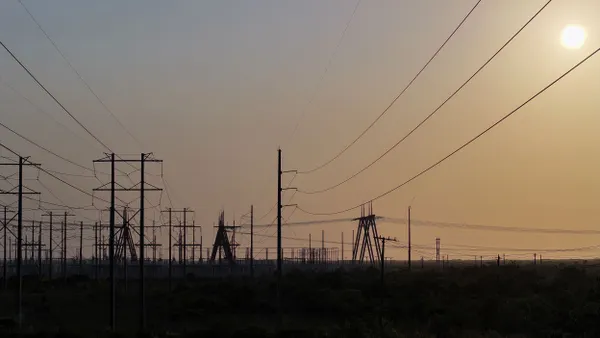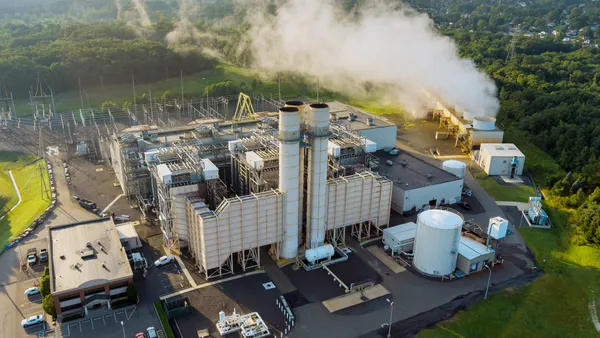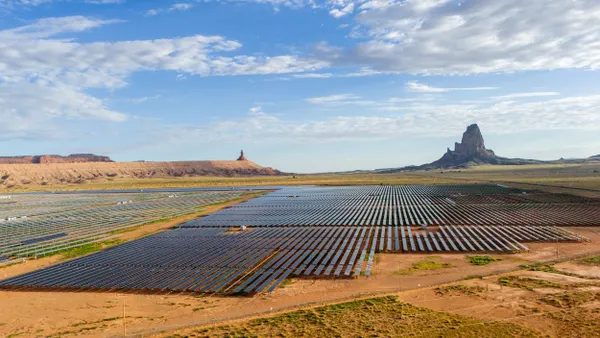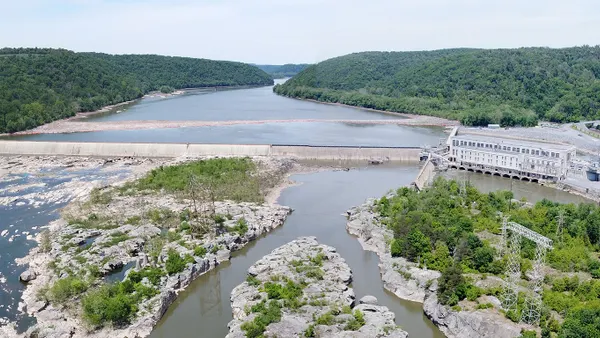Dive Brief:
- The Massachusetts Department of Public Utilities confirmed yesterday that it will review allegations that Eversource and Avangrid artificially acted to constrain natural gas capacity on the Algonquin pipeline, particularly on the coldest days.
- A report from the Environmental Defense Fund accused the gas utilities of scheduling more gas than they needed, and then canceling some orders so late the capacity could not be resold. Department of Public Utilities Chairwoman Angela O’Connor said the agency would be looking into the companies' procurement practices.
- The local distribution companies (LDCs) have denied any wrongdoing, saying their scheduling practices were standard. EDF, however, has published data visualization and an explanation of its research, which included analyzing gas flows at all 117 delivery points on Algonquin over a period of 18 months.
Dive Insight:
Eversource and Avangrid are under increasing scrutiny, with the the DPU just the latest to signal an investigation.
Earlier this month, Massachusetts Attorney General Maura Healey said her office is reviewing the EDF findings, Sen. Richard Blumenthal (D-CT) asked the Federal Energy Regulatory to open an investigation into the utility behavior, and the Connecticut Public Utilities Regulatory Authority has opened an investigation. New Hampshire Consumer Advocate D. Maurice Kreis also called for further investigation in an op-ed.
In an emailed statement, DPU Chairwoman Angela O'Connor said the agency "takes seriously its responsibility to protect ratepayers across the Commonwealth, and has begun a thorough review of allegations raised in a recent report on the unnecessary withholding of natural gas capacity."
O'Connor said the review will seek information from gas companies on "how their procurement practices balance gas supply needs with delivering reliable service at the lowest costs possible for consumers.”
The impact on consumers was significant, according to EDF's analysis. The practice tied up as much as 7% on the most constrained days — translating into 28% of the gas that would have been used by power generators. According to the researchers, the behavior cost consumers $3.6 billion in higher power bills over the past three years.
The firms call the EDF report a "complete fabrication" and say their behavior was only to ensure they had ample pipeline capacity available for unexpected demand fluctuations.
"When weather predictions are uncertain ... it is common sense to err on the side of caution in reserving gas supply and to have a safety margin or cushion to cover unexpected operational issues," Thomas Kiley, CEO of the Northeast Gas Association wrote in a Utility Dive op-ed."That is what Avangrid and Eversource did."
But the researchers from EDF, UC Santa Barbara, University of Wyoming and Vanderbilt University say the two firms' behavior was distinct from other companies. The mass of data analyzed, they said, revealed LDCs owned by Eversource and Avangrid "consistently behaved differently than all the others."
"We don’t know why, but there’s no question that it occurred," they wrote.
Regardless of motive, the researchers say the findings point to a need to reform gas markets. A new policy paper from EDF, published alongside the pipeline report, advocates for a system where gas capacity is contracted more often throughout the day, putting a more exact value on pipeline capacity and ramping needs for gas plants.
“Generators should be able to buy in hourly or even 15-minute blocks, in standardized markets, with transparent prices,” researchers wrote. “Along with much greater efficiency, this limits opportunity for abuse and helps ensure pipelines are better utilized."
Correction: This post has been updated to reflect that D. Maurice Kreis is the consumer advocate for New Hampshire, not Connecticut.













